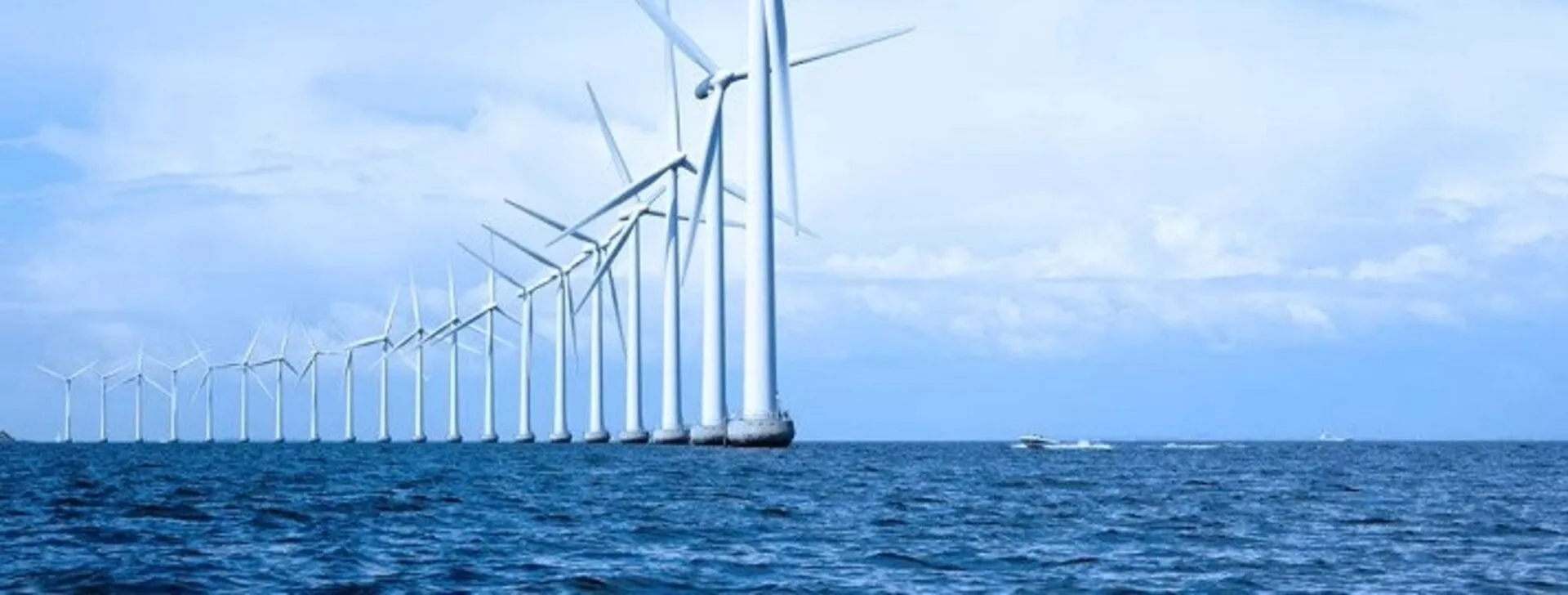
0ffshore wind power: a challenge for the energy transition
With the French law adopted on 10 March 2023 on the acceleration of renewable energy production, offshore wind farm projects will be accelerated in the country.
The massive deployment of renewable energies is essential in the fight against climate change by reducing dependence on fossil fuels. If we take the example of France, in 2022, 63% of electricity production came from nuclear energy, 26% from renewable energy and 11% from fossil fuels1. To accelerate the energy transition, the promulgation of the Renewable Energy Acceleration Act on 10 March marks the beginning of a new stage. The aim of this law is to facilitate the installation of renewable energies to make up for the delay in this area, as France was the only European country not to have reached the objective set by the European Union of a 23% share of renewables in 2020.
This law aims to conciliate the improvement of local support with the acceleration of the deployment of renewable energies. It is structured around four pillars: 1/ speeding up procedures, 2/ freeing up the necessary land, 3/ accelerating the deployment of offshore wind power and 4/ improving the financing and attractiveness of renewable energy projects.
As far as offshore wind is concerned, 8 projects have been launched since 2011 and the French government has set itself the target of deploying 50 wind farms to reach 40 GW by 2050. Two new wind farms located off the islands of Yeu-Noirmoutier and Le Tréport-Dieppe have just completed their financing in early 2023. "With respectively an average annual production capacity of 1,900 GWhs to supply nearly 800,000 people with electrcity and 2,000 GWhs to supply 850,000 people, these are major energy projects and a concrete commitment to the success of France's energy transition," explains Yann Le Bot, Director Energy+ Group at Societe Generale, which acted as financial advisor on these two projects. "The bank has accompanied the project team and its shareholders all along the project, from its early days to the signing of this complex project financing. Thanks to its long experience in financing offshore wind projects and its accurate vision of the market, Societe Generale contributed significantly to the success of this project," adds Mickaël Jozefowicz, CFO of the "Eoliennes en Mer Dieppe Le Tréport" company.
With this law, the planning of projects will be done facade by facade2 and no longer project by project. The objective is to have a coordinated development and, according to the published decrees, more regular calls for tender during which the winners will position themselves on larger volumes. This planning will be done in consultation with the National Commission for Public Debate (CNDP). Four public debates - one per coastline - will be organised in 2023 to determine with the stakeholders (fishermen, environmental protection associations, tourism players, large ports, yachtsmen, etc.) and the general public the potential zones and the main characteristics. "This has yet to be confirmed by the publication of the decrees, but the law provides for priority to be given to the most suitable areas located in the exclusive economic zone (EEZ), which will facilitate public support," explains Nicolas Lorinet, Director Energy+ Group at Societe Generale.
With the upcoming acceleration of offshore wind projects, industrialists and energy players will need expertise and advice to respond to calls for tender and to finance these activities. "Offshore wind is a very competitive market with a huge number of requests for few projects and this competitiveness in the calls for tenders is reflected in the rather low prices compared to current energy prices or the prices of the latest calls for tenders for solar photovoltaic or onshore wind energy," says Nicolas Lorinet. "The optimisation of all the elements in the chain is necessary to win the tenders. In this respect, we put our expertise at the service of our clients by assisting them from the tender phase," adds Yann Le Bot.
In this context, new technologies and new business models will emerge, such as the Provence Grand Large pilot project, one of the first in the world made up of 3 floating wind turbines, under construction in the Mediterranean Sea off Marseille. To further protect biodiversity, the project relies on a new technology: the wind turbines will be based on innovative floats known as "tensioned anchor lines" which limit the impact on the environment and the seabed. Societe Generale is the financial advisor and lead arranger for this innovative project, the financing of which was made possible by the expertise of energy consulting engineers and their knowledge of offshore platforms.
The new law also includes a section on agrivoltaics, which allows the deployment of photovoltaic panel installations compatible with agricultural production. "The conditions for the development of agrivoltaics have yet to be determined, but we will be able to draw on the expertise of all our teams to provide our customers with the best possible support in future calls for tenders in this field," concludes Nicolas Lorinet.
1 source RTE France
2 The 4 maritime facades are Normandy, Brittany, New Aquitaine and the Mediterranean




